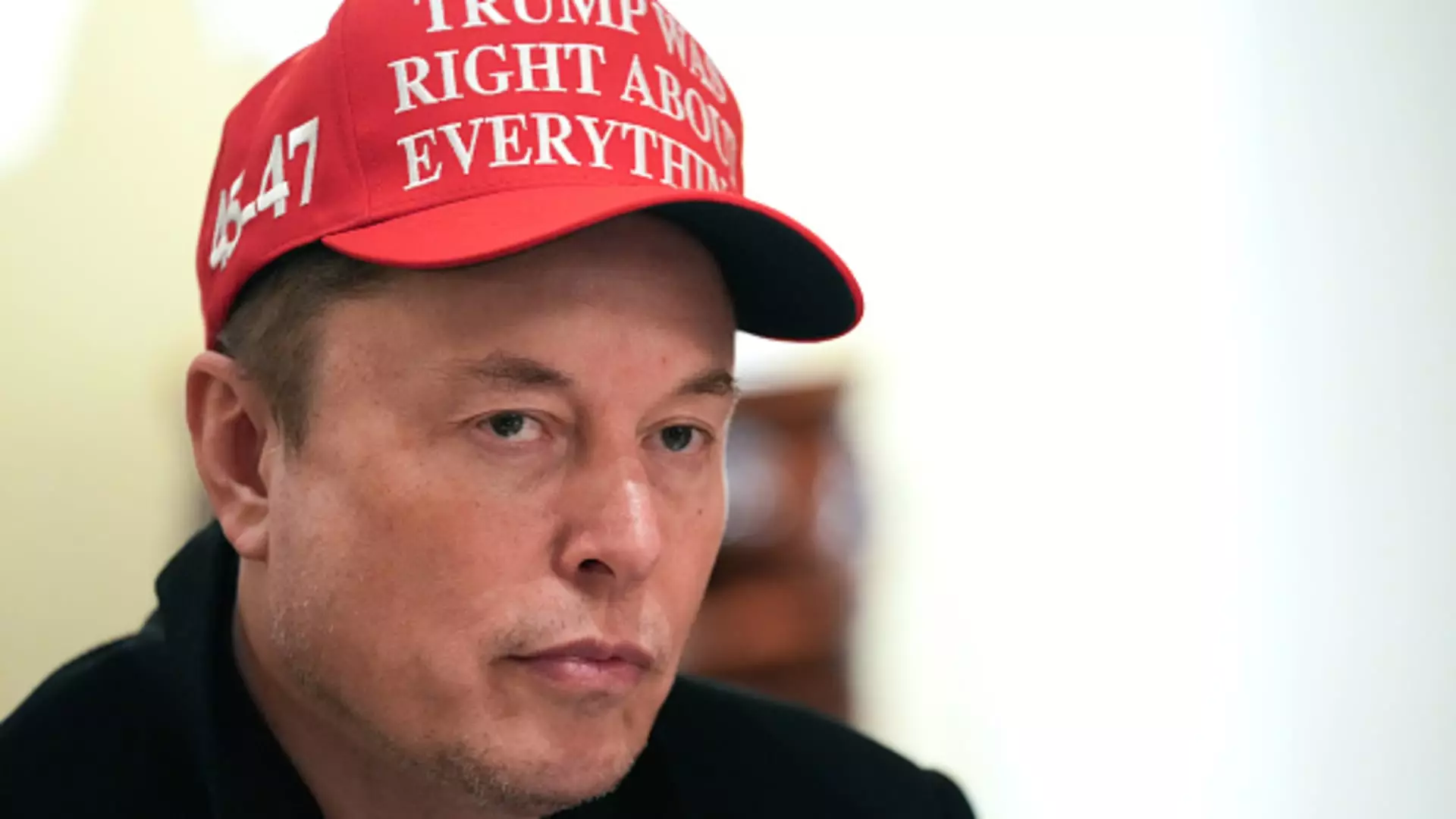In today’s turbulent economic climate, it seems that Tesla and its CEO Elon Musk are facing a significant backlash from both investors and the general public. Just a glance at Tesla’s stock performance reveals a harsh reality; a continuous sell-off has raised alarms among stakeholders. Recent data from the CNBC All-America Economic Survey establishes that public sentiment toward Tesla is predominantly negative, with a staggering 47% expressing unfavorable views of the electric vehicle titan. In stark contrast, only around 27% exhibit a positive outlook, while the remaining 24% remain indifferent. This stark statistic raises questions about what factors are driving these sentiments and how they might affect Tesla’s future.
Musk’s Polarizing Influence
At the heart of this downturn is Elon Musk himself—an enigmatic figure who has garnered both adoration and animosity. The survey indicates that nearly half of respondents view Musk negatively, which highlights his polarizing status as a public figure. Conversely, a mere 36% of people regard him favorably, with 16% taking a neutral stance. The disparity is pronounced among political affiliations: only 20% of Democrats have a favorable view of Musk, compared to 56% of Republicans, showcasing a divide that is reflective of America’s broader political climate. This disconnect poses a substantial challenge for Tesla, as the perception of its leader could directly translate into hesitancy among potential customers—especially those from demographics that tend to lean Democratic.
The EV Market Landscape
Another striking finding from the survey is that while public enthusiasm for electric vehicles (EVs) is relatively robust, with 33% viewing them positively, the same cannot be said for Tesla itself. A worrying trend is emerging where a substantial segment of the population is more receptive to the concept of EVs than to the very company that pioneered the market. This suggests that despite a global push for sustainable alternatives to traditional vehicles, Tesla is somehow not managing to capture the hearts of consumers who are otherwise amenable to the idea of electric mobility. Micah Roberts of Public Opinion Strategies emphasizes that “where Tesla is strongest is among the people least likely to buy an EV,” indicating that the enthusiasm surrounding EVs does not automatically translate to customer loyalty for Tesla.
Demographic Discrepancies in Perception
Diving deeper into demographic segments presents a more nuanced picture. Young adults aged 18 to 34 show a promising positive sentiment toward EVs (+19) but flip the narrative when it comes to Tesla itself, where they exhibit a dramatic -23 score. Such a disconnect is pronounced among Democrats, whose approval rating for EVs is +20, juxtaposed against a disheartening -74 for Tesla. Meanwhile, Republicans tend to support Tesla while remaining skeptical of EVs in general, which complicates the conversation.
These insights suggest that while Tesla’s mission is increasingly relevant in today’s eco-conscious world, its leadership and branding strategy may need re-evaluation. A divided public perception rooted in political affiliation and demographic trends creates a challenging narrative for one of the most recognizable automotive brands globally. In a volatile market, Tesla must navigate these waters carefully if it hopes to turn around its fortunes and harness the immense potential that the burgeoning EV market represents.

